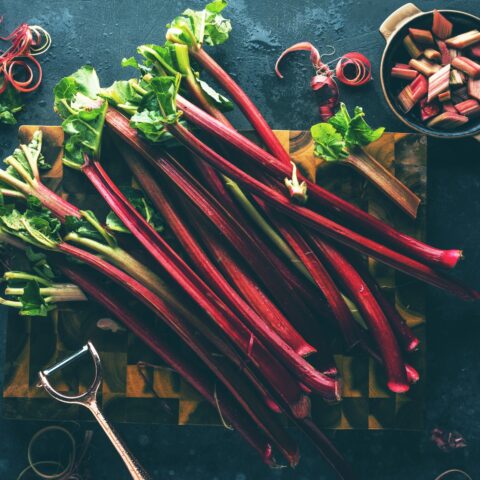How Drinking with Meals Impacts Digestion

Drinking liquids with meals seems to be an accepted part of most cultures and is a given when you order at any restaurant. The waitstaff nearly always begins by asking what you’d like to drink before taking your order.
It’s time to stop and think: What impact does drinking before, during, or after meals have on our digestion? Does the type of beverage determine whether adding liquid around meals is beneficial or detrimental?
How Drinking with Meals Impacts Digestion
According to Erin Rhae Biller, ND, FAIHM, drinking liquids with meals can have both positive and negative effects on digestion: “As a naturopathic doctor, I recommend paying attention to when and what you drink surrounding meals. The act of smelling food triggers the production of digestive juices, priming your body to absorb and utilize nutrients effectively.”
Drinking a big glass of water at the beginning of the meal is a common practice—one Dr. Biller recommends avoiding. “It’s important to avoid consuming large quantities of water or other liquids immediately before or during meals, as this can impair digestion.”
Instead, she recommends sipping slowly and mindfully, even “chewing” your beverages. This practice increases saliva production, which contains enzymes that aid in breaking down food. Digestion begins in the mouth, but you can also use beverages to support digestion throughout the gastrointestinal tract. [1]
Using Beverages to Support Digestion
To support digestive capacity, Dr. Biller suggests incorporating herbal teas like ginger, peppermint, or fennel. These herbs stimulate digestive enzymes and improve gut motility.
- Ginger is a well-known prokinetic, meaning it helps move food through the digestive system, reducing the risk of bloating, constipation, and abdominal discomfort. It’s also a powerful anti-inflammatory spice that can soothe an upset stomach. [2]
- Peppermint is also a prokinetic and anti-inflammatory. It contains menthol, which has an antispasmodic effect on the muscles lining the digestive tract. It may help reduce cramping and bloating. It also promotes bile flow, aiding in fat digestion. [3,4]
- Fennel seeds have compounds like anethole, which have carminative properties and help to reduce gas and bloating. [5,6] Fennel also promotes balanced stomach acid, gut motility, and digestive enzyme secretion. [7,8]
RELATED: 5 Beneficial Fall Spices to Add to Your Diet
Apple cider vinegar (ACV) is another helpful tool Dr. Biller recommends for supporting the stomach and overall health. Taken before meals, it can stabilize blood sugar levels, enhance stomach acid production, and improve the overall efficiency of digestion. [9]
Dr. Biller recommends aiming for 1-2 teaspoons of ACV in a glass of water 10-15 minutes before eating. You can also try this Fire Cider recipe to support not only digestion but a robust immune response. Just customize the herbs and spices to your preferences and tolerance of heat.
After meals, warm herbal teas or bitters can further assist the digestive process, helping to reduce bloating and promoting nutrient absorption. After all, “timing is everything.” By timing your beverage intake and choosing digestive-supporting options, you can enhance your body’s ability to process and absorb the nutrients from your food. That’s where the idea of apéritifs and digestifs comes from.
Apéritifs vs. Digestifs
An apéritif is an alcoholic drink served before a meal to stimulate the appetite. It’s a tradition in many cultures, but especially in France, Italy, and other parts of Europe. The term comes from the Latin word aperire, meaning “to open.” Apéritifs are usually light and low in alcohol. They’re meant to be refreshing and create a relaxed atmosphere before the meal.
A digestif, on the other hand, is an alcoholic drink typically served after a meal to support digestion. Digestifs are traditionally enjoyed in small quantities, sipped slowly, as a part of European dining culture. France, Italy, and Germany are known for their use of digestifs. Examples of digestifs used in those European countries include cognac, limoncello, and brandy. [10]
Rather than resorting to alcohol to aid digestion, consider one of the following alcohol-free herbal options, formulated by Dr. Biller. These Paleo-friendly beverages help balance blood sugar, promote healthy digestion, and support detoxification without compromising your health.
3 Fall Beverages to Support Digestion
Enjoy these three beverages to support digestion without diluting your natural digestive juices. Autumn herbs elevate the senses (stimulating the brain), prime digestion, and create a satisfying mealtime experience.
Apéritif: Herbal Apple Cider Vinegar Tonic
Serves 2
This pre-meal tonic balances blood sugar and uses raw apple cider vinegar to prime digestion. Fresh rosemary and thyme are said to support immune and brain function. This warm beverage is especially comforting during colder months.
Cold Digestif: Sparkling Citrus Digestif
Serves 2
A refreshing, digestion-boosting mocktail will work wonders after a rich meal. This mocktail features dandelion root bitters for liver and bile support, and lemon juice and unsweetened cranberry juice for astringent effects.
Warm Digestif: Digestive Support Ginger Cinnamon Tea
Serves 2
This warm, spiced, soothing herbal tea (AKA tisane) is perfect for easing post-meal discomfort and supporting digestion naturally. The anti-inflammatory properties of ginger and blood sugar-balancing effects of cinnamon make this a perfect winter digestive tea. Fennel and cloves are warming spices believed to support digestion and reduce bloating.
Final Thoughts on Drinking with Meals
Selecting the right beverages to accompany meals can significantly enhance your digestion and overall health. Whether choosing apple cider vinegar to support stomach acid or preparing a warm tea to soothe after a meal, being intentional with what and when you drink makes a difference.
Instead of diluting your stomach acid with large amounts of water, opt for beverages that actively support digestion, like ACV tonics, mocktails, or herbal teas. Incorporating these practices into your daily routine can create a more balanced dining experience that works with your body’s natural digestive processes.
References
- NIDDK. Your Digestive System & How It Works [Internet]. NIDDK. 2017. Available from: https://www.niddk.nih.gov/health-information/digestive-diseases/digestive-system-how-it-works
- Sahar Foshati, Poursadeghfard M, Heidari Z, Amani R. The effects of ginger supplementation on common gastrointestinal symptoms in patients with relapsing-remitting multiple sclerosis: a double-blind randomized placebo-controlled trial. BMC Complementary Medicine and Therapies. 2023 Oct 27;23(1).
- Scarpellini E, Broeders B, Schol J, Santori P, Addarii M, Boccuto L, et al. The Use of Peppermint Oil in Gastroenterology. Current Pharmaceutical Design [Internet]. 2023;29(8):576–83. Available from: https://pubmed.ncbi.nlm.nih.gov/36994979/
- ZONG L, QU Y, LUO DX, ZHU ZY, ZHANG S, SU Z, et al. Preliminary experimental research on the mechanism of liver bile secretion stimulated by peppermint oil. Journal of Digestive Diseases. 2011 Jul 25;12(4):295–301. Available from: https://pubmed.ncbi.nlm.nih.gov/21791024/
- Aprotosoaie AC, Costache II, Miron A. Anethole and Its Role in Chronic Diseases. Advances in Experimental Medicine and Biology [Internet]. 2016;929:247–67. Available from: https://pubmed.ncbi.nlm.nih.gov/27771928/
- SOEREN KLAUS BUENTZEL, HUEBNER J, BUENTZEL J, MICKE O. Medicinal Plants Used for Abdominal Discomfort – Information from Cancer Patients and Medical Students. In Vivo. 2022 Jan 1;36(5):2422–33. Available from: https://pmc.ncbi.nlm.nih.gov/articles/PMC9463914/
- Vasudevan K, Vembar S, Veeraraghavan K, Haranath PS. Influence of intragastric perfusion of aqueous spice extracts on acid secretion in anesthetized albino rats. Indian Journal of Gastroenterology: Official Journal of the Indian Society of Gastroenterology [Internet]. 2000 Apr 1;19(2):53–6. Available from: https://pubmed.ncbi.nlm.nih.gov/10812814/
- Alexandrovich I, Rakovitskaya O, Kolmo E, Sidorova T, Shushunov S. The effect of fennel (Foeniculum Vulgare) seed oil emulsion in infantile colic: a randomized, placebo-controlled study. Alternative Therapies in Health and Medicine [Internet]. 2003 Jul 1;9(4):58–61. Available from: https://pubmed.ncbi.nlm.nih.gov/12868253/
- Johnston CS, Kim CM, Buller AJ. Vinegar Improves Insulin Sensitivity to a High-Carbohydrate Meal in Subjects With Insulin Resistance or Type 2 Diabetes. Diabetes Care [Internet]. 2003 Dec 23;27(1):281–2. Available from: http://care.diabetesjournals.org/content/27/1/281
- Aperitif and digestif | Beverages, Meaning, Examples, & Difference | Britannica [Internet]. www.britannica.com. Available from: https://www.britannica.com/topic/aperitif
Betsy Schroeder
Betsy does research and writing for a few different websites in the natural health field after taking Masters level courses in Nutrition & Functional Medicine through the University of Western States.
More About The Author



